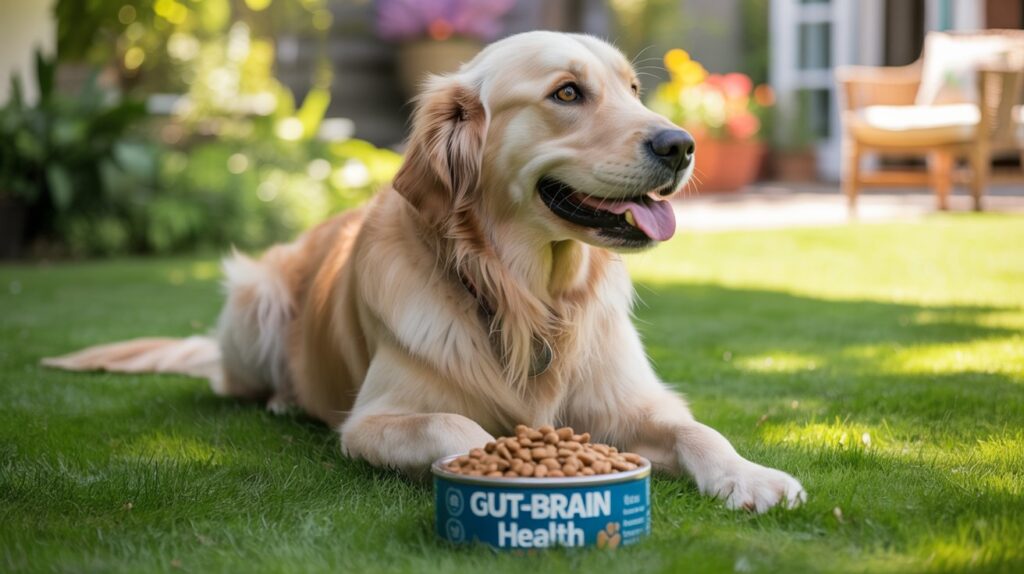Table of Contents
- Introduction
- Understanding the Gut-Brain Axis in Pets
- The Role of Probiotics for Pets
- The Importance of Prebiotics for Pets
- How Probiotics and Prebiotics Work Together
- Signs Your Pet May Need Gut Support
- Choosing the Right Probiotics and Prebiotics for Your Pet
- Conclusion
- FAQs
Introduction
The gut-brain connection is a crucial yet often overlooked aspect of pet health. Just like in humans, a pet’s digestive system communicates directly with their brain, influencing mood, behavior, and overall well-being. Probiotics and prebiotics play a vital role in maintaining a healthy gut microbiome, which in turn supports cognitive function, immunity, and digestion. This article explores how probiotics and prebiotics can enhance your pet’s gut-brain axis and improve their quality of life.

Understanding the Gut-Brain Axis in Pets
The gut-brain axis is a bidirectional communication system between the gastrointestinal tract and the central nervous system. In pets, a balanced gut microbiome helps regulate:
- Mood and behavior (reducing anxiety and stress)
- Immune function (preventing infections and allergies)
- Digestive health (reducing bloating, diarrhea, and constipation)
An imbalance in gut bacteria (dysbiosis) can lead to inflammation, behavioral issues, and chronic health problems.
The Role of Probiotics for Pets
Probiotics are live beneficial bacteria that support a healthy gut. Key benefits include:
- Enhancing digestion and nutrient absorption
- Boosting immune response by crowding out harmful bacteria
- Reducing stress-related behaviors by producing serotonin and other neurotransmitters
Common probiotic strains for pets include Lactobacillus, Bifidobacterium, and Enterococcus.
The Importance of Prebiotics for Pets
Prebiotics are non-digestible fibers that feed beneficial gut bacteria. They help:
- Promote the growth of probiotics
- Improve stool quality and reduce gastrointestinal issues
- Support metabolic health and weight management
Sources of prebiotics for pets include chicory root, pumpkin, and flaxseed.
How Probiotics and Prebiotics Work Together
While probiotics introduce good bacteria, prebiotics act as their fuel. Together, they:
- Strengthen the gut barrier, preventing leaky gut syndrome
- Enhance mental well-being by regulating neurotransmitter production
- Improve long-term gut health by sustaining microbial balance
Signs Your Pet May Need Gut Support
Watch for these symptoms of gut imbalance:
- Chronic diarrhea or constipation
- Excessive gas or bloating
- Skin allergies or frequent infections
- Anxiety, lethargy, or aggression
Choosing the Right Probiotics and Prebiotics for Your Pet
When selecting supplements:
✔ Look for vet-recommended strains
✔ Check for prebiotic fibers (FOS, inulin)
✔ Avoid artificial additives
✔ Opt for species-specific formulas
Conclusion
A healthy gut microbiome is essential for your pet’s physical and mental well-being. By incorporating probiotics and prebiotics into their diet, you can support their digestion, immunity, and even behavior. Always consult your veterinarian before starting any new supplement regimen.
FAQs
1. Can probiotics help with my pet’s anxiety?
Yes! A healthy gut produces serotonin, which helps regulate mood and reduce stress.
2. Are human probiotics safe for pets?
No, pets require species-specific strains. Human probiotics may not be effective or safe for animals.
3. How long does it take for probiotics to work in pets?
Improvements can be seen within a few days to weeks, depending on the pet’s condition.
4. Can I give my pet probiotics and prebiotics daily?
Yes, many probiotics and prebiotics are designed for daily use to maintain gut health.
5. What foods contain natural prebiotics for pets?
Pumpkin, sweet potatoes, and oats are excellent natural sources.
